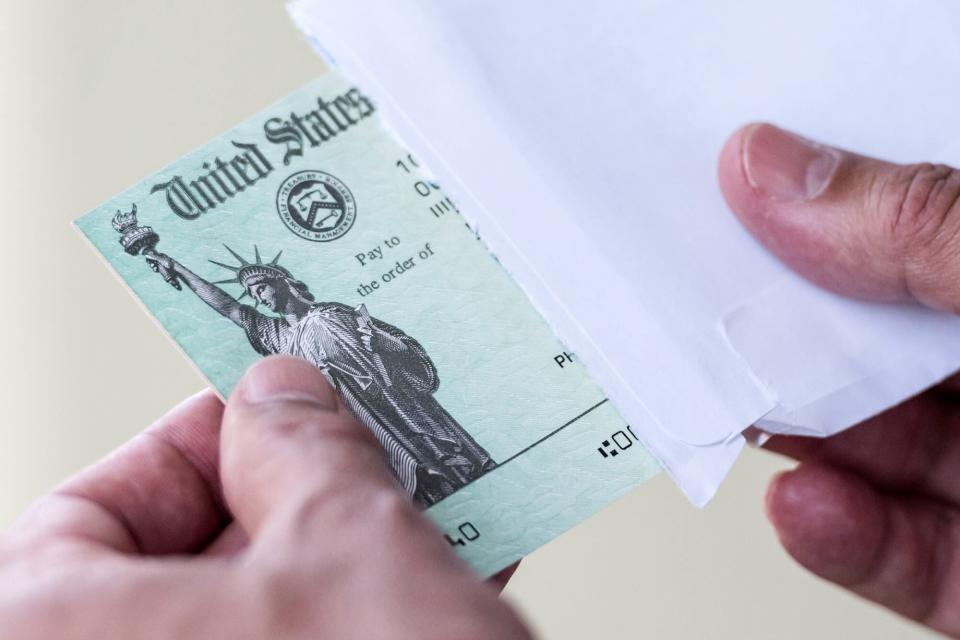Here’s Why You Haven’t Received Your Stimulus Check Yet — and What You Can Do Now

Getty
If you weren't one of the millions of Americans to receive your stimulus check this week, hang tight — there could be a reason for that.
The Internal Revenue Service has said that the checks, worth up to $1,400, are coming in batches, the first of which began processing on Friday, March 12.
Some people, however, had to wait until the official payment date of Wednesday, March 17, and saw their payments as pending or provisional until then.
If you still haven't gotten yours yet, there's a chance that it's still in the mail — the Treasury said on Wednesday that it mailed about 150,000 checks, and more would be sent out in the coming weeks.
There could, however, be another reason: your money may have been intercepted by a debt collector, according to Yahoo! Finance.
The outlet reported that there's a new loophole in this go-round of payments not seen in the previous two rounds that now gives debt collectors access to seize the checks to pay off debts, not including tax debt or back child support.
RELATED VIDEO: Police Officer, One of the First & Worst Cases of COVID in U.S., Reflects on His Recovery
If that is the case for your payment, it hopefully won't be for long: on Wednesday, Senate Democrats introduced a bill that would shield the payments from debt collectors, according to The Hill.
Meanwhile, not receiving a check could also mean that the IRS simply doesn't know you're eligible. Not everyone has to file their taxes — and if you're in that group, the IRS has no way of knowing you should be receiving a check.
According to H&R Block, if you're single, under 65 years old and make less than $12,400, you don't need to file taxes, and therefore won't receive a check. Yahoo! Finance advises signing up for a reliable tax software program to fix the issue.
RELATED: Spending Your Stimulus Check? Here Are 6 Smart Money Moves, According to Suze Orman
If you did not file your taxes in 2019 or 2020 and have not registered for the Economic Impact Payment using the IRS' Non-Filers portal, you can still do so, and can still receive all three stimulus checks, by filing a 2020 return and claiming the Recovery Rebate Credit.
If neither of those hold-ups apply to you, it could be that your check is just coming in the next batch. Those who have direct deposit set up were prioritized in the first go-round, so others may have to wait several weeks for their payments to come in the mail, either as a check or a prepaid debit card. The IRS said the cards will come in a white envelope prominently displaying the U.S. Department of the Treasury seal.
Those who are eligible include anyone making less than $75,000 per year, or couples making less than $150,000 combined.
RELATED: Haven't Received Your Stimulus Check Yet? Here's How to Check Your Status
Dependents in families who earn less than $150,000 combined are also eligible for checks, and the IRS will refer to an individual's most recent tax return, including for 2020 if already filed, to determine income eligibility. Unlike the first two checks, dependents do not need to be under 17 years old to be eligible.
Individuals making between $75,000 and $80,000 will still receive a check, but it will be smaller than $1,400, and those making more than $80,000 will not get a check at all.
In order to check your status, you can visit the IRS' "Get My Payment" tool.

 Yahoo Finance
Yahoo Finance 